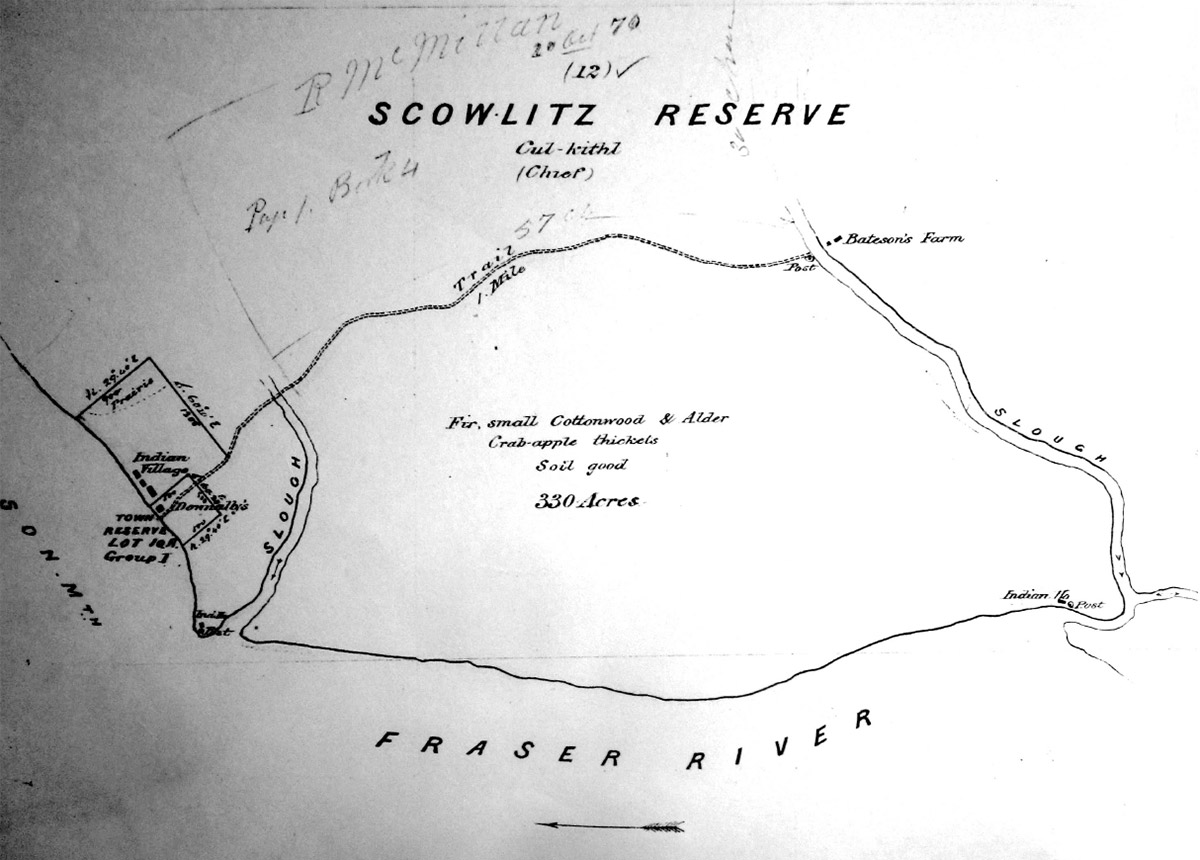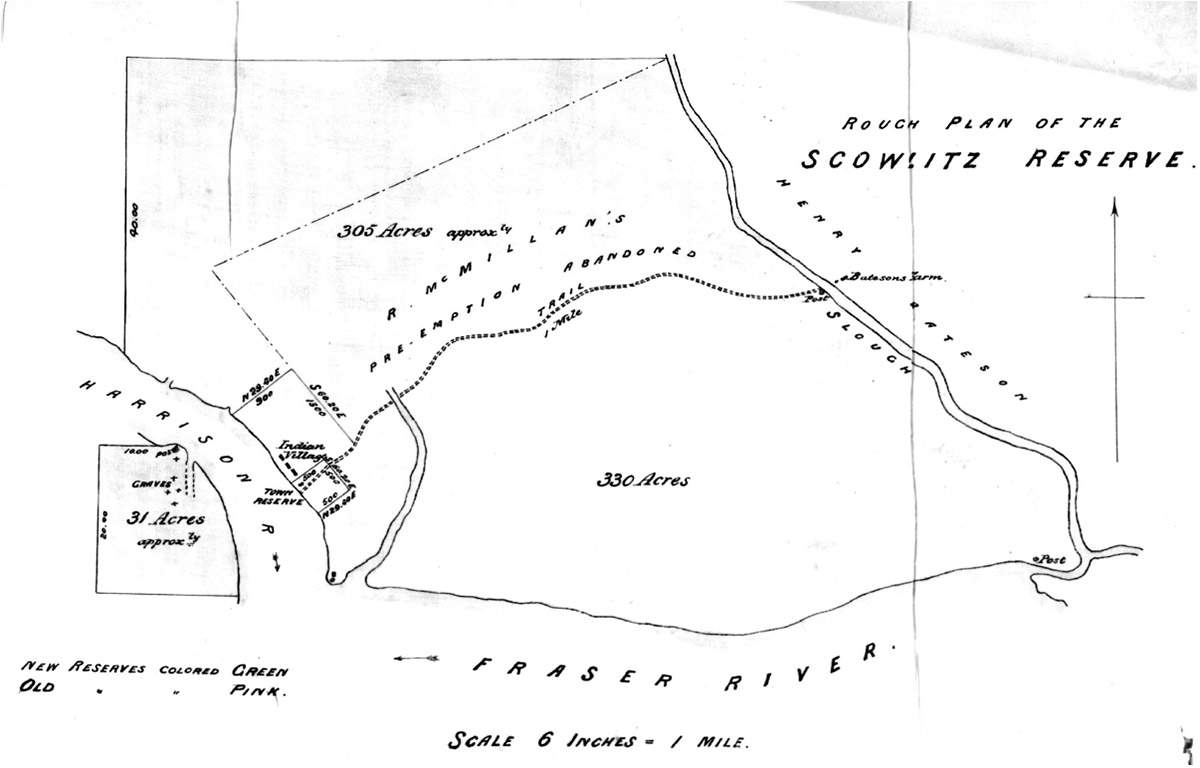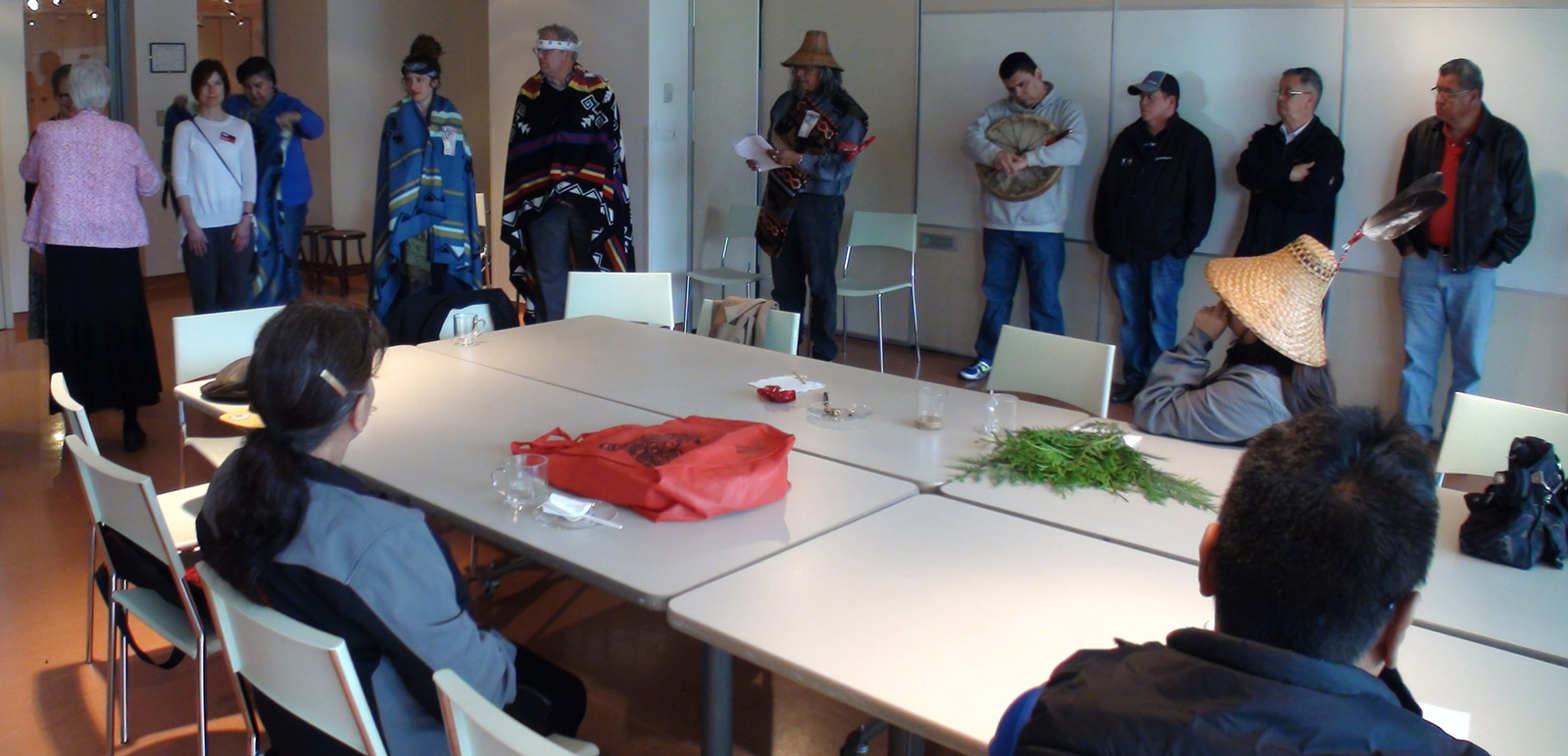[Andy Phillips]: So Sq'éwlets is one of 24 communities in Stó:lō. I’m proud to say that we’re a small community, and we’re a healing community. And you can see the pride in some of the families now. It’s really good to see that transition, and I’m glad to be part of that.
[Reg Phillips]: It wasn’t cool to be a native, when I was young. There was a lot of prejudice and a lot of discrimination. And there were a lot of things that I really didn’t understand at the time, about a lot of things. I told my mom I would try residential school. Well they brought me, they dropped me off.
[Vi Pennier]: My experience there was just like... everything was punishment.
[Clarence Pennier]: When I was six, going on seven. I was taken from the Sardis hopyards to St. Mary’s school in Mission. You know in grade 12, that first morning I got on the school bus outside the res. And looked at all these brown faces. I really never knew who they were. But they were from Chehalis, and they were a number of them were my cousins. But I didn’t know that because I spent time in the school all the time. And down in the states berry picking. So that’s how I grew up without any real teachings handed down through my grandparents or parents. My grandparents were from Chehalis, from my mother’s side. On my father’s side, they were living off reserves. I never really - never really got to know my grandparents from either mother or father. For the fact of being in the school and berry camp.
[Reg Phillips]: There’s so much in my life that when I was blinded by the pain and the sorrow, Blinded when I drank. And now to see that blindedness that I created could be undone.
[Clarence Pennier]: I quit drinking, and I waited for two years before I talked to Willie about accepting the gift. So that started the process of going through the ceremonies of making sure that I could get that gift. And have to go through different teachings and have older dancers talk to me about what it means to wear that mask and how I have to conduct myself and all the different things that we can do with it. You know, in terms of helping people, and it’s all it is, is to make sure we help people. Whether it’s for their funerals, whether it’s for their weddings, whether it’s for their naming ceremonies.
[Joseph Chapman]: But you really don’t realize like how much you’re hurting people until you sober up. And that’s when your work begins. You know, you know you’re hurting people, but the alcohol - it won’t let you stop. Unless you stop it. You know people can always say, :I’m going to sober up for this person and that person,” but you really gotta sober up for yourself. I hear it all the time, you know, how are you gonna, how are you gonna support your family? How are you gonna love family? How are you gonna do this, how are you gonna do that if you can’t even do it for yourself? ‘Cause if you’re not happy, you can’t make anybody else happy.
[John Williams, Sr.]: Nowadays, you have to teach your kids how to paddle and how to balance themselves on the canoe. We didn’t have to do that back in them days because you lived on the canoe.
[Reg Phillips]: The past can either imprison us, or set us free. That is our choice. And so, link that with the tremendous culture and customs and traditions that we have as Xwelmexw people. All of the sacred things that the people, the native people, do or live through like culture is a way of living. And I think just beginning to understand who we are and what we are and why we are. And I believe that last one, like why we are, what are we really here on this earth, at this time, for. And I really believe it has to do with a lot of healing. And they say if you can heal the mind, you can heal the body.
[Andy Phillips]: If we don’t have identity, we’ll just become assimilated to the Western world society. And if you look at a million people in Canada, Aboriginal to 30 million people together, you know that policy really almost wiped out our nation. We’ve survived all of what’s been thrown before us, so. I thought it’s very important that we, again, let our kids be part of something as a transition. That transformation. I want to be transformed into that true definition of an Indian.
[Vi Pennier]: Always keep an open mind. Nothing is really wrong, unless you make it wrong. Everything is precious. White or First Nations, is very, very precious.






















































